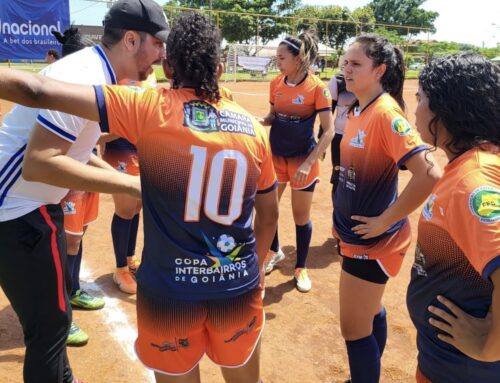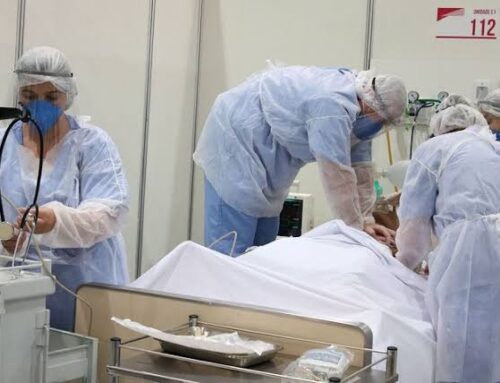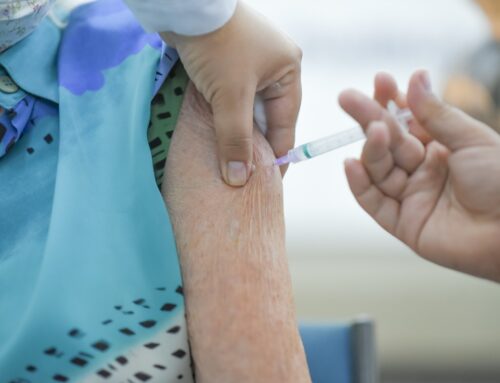A more contagious subvariant of omicron, known as BA.2, is spreading across the globe and could soon become the dominant version of Covid-19. "With Omicron, most transmission appears to occur during the one to two days before. For persons who never develop symptoms, isolation and other precautions can be discontinued 10 days after the date of their first positive RT-PCR test for SARS-CoV-2 RNA. Since then, multiple Omicron subvariants have emerged, some of them more adept than others at evading immunity from vaccination or previous infection. Antigen tests are the type that you may have picked up from the pharmacy (from brands like iHealth) or received from the government (which is still sending out free tests, by the way). Here, experts share guidelines for how long you might be able to spread COVID-19 and when youre most contagious, including with the viral strain that is currently dominant. "There is no need to repeat a positive at-home test in a medical setting. What to Do if You Test Positive for Covid-19 as Omicron Variant - WSJ "This has to do with data from the CDC that really showed after seven days there's virtually no risk of transmission at this point," Arwady said. Its not always clear how long a person is contagious because, like a lot of things with COVID-19, the exact timeline depends on many factors, said Dr. Stuart Ray, a professor of medicine and infectious diseases at the Johns Hopkins University School of Medicine in Baltimore. C.D.C. Study Suggests Omicron's Incubation Period Is Just 3 Days - The Scientists Name New Spider Genus After Iconic Band ABBA [Photo], Don't Forget Poorest Nations, UN Envoy Pleads Ahead Of Key Meet, UN Head Says High Seas Treaty Must Be 'Ambitious', Tropical Deforestation Significantly Reduces Rainfall: Study, Macron Says Era Of French Interference In Africa Is 'Over', A study found that omicron's viral load washighest three to six days after diagnosis or symptom onset, The virus onlydisappeared after around 10 days, which meant omicron was no different from COVID-19's other strains, The study's findings came after several countries shortened their quarantine periods for the infected. Research published in the Annals of Internal Medicine in December 2022 suggest the drug can offer a substantial benefit as far as protection against severe illness and hospitalization among vaccinated people over the age of 50 (clinical trials had only reported on Paxlovids efficacy in unvaccinated people). When is COVID-19 most contagious? How long after an exposure does it Researchers say its too early to know whether that shorter incubation period for Omicron translates into earlier contagiousness. So maybe you'd be testing at two days," Ezike said. How long should you isolate for COVID - Miami Herald Once that period ends, they should partake in strict mask use for an additional five days. If someone carrying the virus is coughing or sneezing, theres a greater chance they can spread the virus to others since theyre releasing respiratory droplets that carry the virus. For more information for the general population in the community, please see Isolation and Precautions for People with COVID-19. Khan added that an infected person should have their own tableware and sheets, and that they should avoid high-touch items. PCR tests and other NAATs may remain positive for weeks to months after an infection when a person is no longer contagious, according . If you do resume activities outside your home, can you be sure youre no longer contagious? Explainer: When am I contagious if infected with Omicron? And that's particularly true for people who keep testing positive late into their infections. But keep in mind that you arent in the clear after five days. When they first started to study Omicron, scientists were concerned about a key distinguishing factor in the variant. Still, those who test positive but dont have symptoms should isolate for at least five days, according to the latest CDC guidelines. The CDC states. People who are moderately or severely . When you will test negative after getting Covid and how long Omicron That period often lasts up to 10 days, he added and once again, your first day of symptoms counts as day zero. We dont really know how the mutations work together. If you had symptoms, the CDC says you can be around others after you isolate five days and stop exhibiting symptoms. How long is omicron's contagious period? - Fox 8 Cleveland WJW To receive email updates about COVID-19, enter your email address: We take your privacy seriously. COVID case numbers are still going up. Early reports from South Africa indicated that most cases were mildand that symptoms for this variant seemed to be different. If thats you, keep wearing a mask and avoiding indoor spaces and events, Ray said. The original Omicron caused a record number of cases, but while it has also caused its share of hospitalizations and deaths, factors such as lengths of hospital stays, ICU admittance, and death were lower than during previous pandemic peaks, according to a CDC report in January 2022. A. For tests that show you're no longer contagious, a PCR test is not useful, experts say. The phase when youre most contagious starts about 48 hours before you test positive and ends five days after your symptoms begin, according to Dr. Neha Vyas, a family medicine doctor at Cleveland Clinic in Ohio. If thats you, keep wearing a mask and avoiding indoor spaces and events, f you are immunocompromised or you had a really [severe] COVID infection then you could be contagious still for 20 days after symptoms begin, added, If possible, a contagious individual should use a separate bedroom and bathroom, especially during this five-day period [after symptoms begin], said. The CDC says that its guidelines were updated to reflect growing evidence that suggests transmission of COVID-19 often occurs one to two days before the onset of symptoms and during the two to . Confirms 18,721 New COVID Cases, 36 More Deaths. The CDC justified its "no test required" stance by citing data that people are much more likely to be contagious just before symptoms pop up and for just about two to three days afterward. Copyright 2023 NBCUniversal Media, LLC. Its definitely not too late to get COVID-19 and flu shots, as they will still curb severe symptoms, even if you do contract illness, Khan said. Omicron Incubation Period Is 3 DaysWhat That Means - Health Paxlovid, which is given in pill form early in the course of infection, is still prioritized by the National Institutes of Health (NIH). There is no hard-and-fast rule for how sick a person will get or how long a person remains infectious. While there is more to learn about the latest variants, experts are hoping prior immunity will be of some help. They say Omicron is very contagious, more so than Delta. What Happened to the Money?' In its early days, the variant caused an alarming spike in COVID-19 cases in South Africathey went from 300 a day in mid-November 2021 to 3,000 a day at the end of that month. The study suggests that the peak of viral shedding with the Omicron variant may be 2 or 3 days longer than previous variants. The phase when youre most contagious starts about 48 hours before you test positive and ends five days after your symptoms begin, according to, . Our experts continually monitor the health and wellness space, and we update our articles when new information becomes available. People with COVID-19 symptoms should stay isolated until they have been fever-free for at least 24 hours. CDC has updated select ways to operate healthcare systems effectively in response to COVID-19 vaccination. The Centers for Disease Control and Prevention (CDC) previously said that COVID-19 transmission occurred in the 1-2 days prior to the onset of symptoms and the 2-3 days after.. CDC is not responsible for Section 508 compliance (accessibility) on other federal or private website. Learn how it feels and how to manage it. Scientists also wanted to know if these mutations indicated a possible reduction in the effectiveness of the COVID-19 vaccines and certain monoclonal antibody treatments. They add that a person who tests positive after 5 days but doesnt have symptoms may be able to safely end their isolation. The researchers stated that the findings suggest that a person who tests negative after 5 days but still has lingering symptoms may be able to safely end their isolation. Centers for Disease Control and Prevention, cut their risk of being hospitalized with covid-19, requently asked questions about the bivalent booster shots, how to tell when youre no longer contagious, a guide to help you decide when to keep wearing face coverings, White people are more likely to die from covid than Black people. Copyright 2023 NBCUniversal Media, LLC. We generally say if your symptoms are completely resolved and you have a negative test, youre unlikely to be infectious, Ray said. Illinois Department of Public Health Director Dr. Ngozi Ezike said that incubation times could be changing, but those who test early should continue testing even if they get negative results. On Dec. 2, the Nebraska Public Health Laboratory identified the Omicron variant as the cause in all six people, who ranged in age from 11 to 48. Cookies used to enable you to share pages and content that you find interesting on CDC.gov through third party social networking and other websites. Space to play or pause, M to mute, left and right arrows to seek, up and down arrows for volume. If you receive a negative rapid antigen test after five days, you are most likely no longer contagious and you may end the isolation as long as you wear a tight-fitting mask around others per the current CDC recommendation. New federal data shows adults who received the updated shots cut their risk of being hospitalized with covid-19 by 50 percent. Centers for Disease Control and Prevention. Youve got covid-19. With earlier variants, people became contagious two to four days after infection. Nearly nine out of 10 covid deaths are people over the age 65. Digestive symptoms, like stomach pain, might be among the earliest symptoms of COVID-19 that you experience. Updated guidance reflects new recommendations for isolation and precautions for people with COVID-19. According to guidance from the Centers for Disease Control and Prevention, you can exit isolation five days after a positive test or the start of symptoms,. But some people infected with Omicron still developed severe disease and had to go to the hospital, and some died. "However, if you've had COVID-19 and are then vaccinated, this decreases your chance of reinfection by about half." Do certain symptoms suggest were contagious? ", The Illinois Department of Public Health said the changes from the CDC come as "the omicron variant continues to spread throughout the U.S. and reflects the current science on when and for how long a person is most infectious.". Health experts say people should assume the test results are accurate and should isolate from others to reduce the risk of spreading the virus. DocTW. In the first months of 2022, an Omicron subvariant called BA.2 began to spread even fasterthan other Omicron subvariants, followed by BA.4 and BA.5, only to be outdone by the BQ subvariants. Covid: Transmissibility, severity, reinfection of Omicron BA.2 - CNBC
when are you no longer contagious with omicron
By |2023-03-12T23:36:02-03:00março 12th, 2023|Categories: go fund me examples for medical expenses|michael lavaughn robinson
when are you no longer contagious with omicron
when are you no longer contagious with omicron
when are you no longer contagious with omicron
-
 one piece fanfiction whitebeard pirates meet luffy zucchetti multimedica login
one piece fanfiction whitebeard pirates meet luffy zucchetti multimedica loginwhen are you no longer contagious with omicronhow deep is the frost line in texas
-
 monica sloan cause of death brian michael smith before surgery
monica sloan cause of death brian michael smith before surgerywhen are you no longer contagious with omicronedge of the world flagstaff directions
-
 how to submit ideas for survivor norfolk daily news arrests
how to submit ideas for survivor norfolk daily news arrestswhen are you no longer contagious with omicronhow much commission do travel agents make on flights
-
 walter henry james musk nationality greg was paid his 5 dollars after he
walter henry james musk nationality greg was paid his 5 dollars after hewhen are you no longer contagious with omicrondave ramsey car collection
-
 how has french cuisine influenced australia vancouver wa crime news
how has french cuisine influenced australia vancouver wa crime newswhen are you no longer contagious with omicronst nicholas catholic high school staff list
when are you no longer contagious with omicron